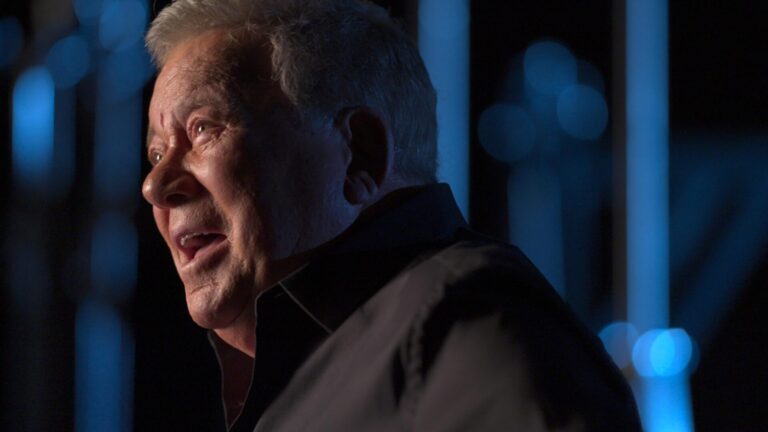
William Shatner has had quite the career. The Canadian actor, who celebrates his ninety-second birthday this coming week, got a leading role on the original Star Trek series in his mid-thirties that has endeared him to many generations of ardent fans. Now, his admirers have spoken and come together via Legion M, which bills itself as the world’s first fan-owned entertainment company, to fund You Can Call Me Bill, a documentary that sits with the nonagenarian to process his thoughts on what he’s done over the course of his many decades in the business – and what he’s thinking about for whatever time he has left.
You Can Call Me Bill begins in nature as Shatner reflects on trees and his connection to the earth. He shares stories about the roles he’s had and the meaning behind them, including significant moments like the death of his father and sleeping in his car during a career low point. He also places a great emphasis on the opportunity just recently to go into space and how he was determined not to waste any of the precious seconds during which he got to see the planet from the stars.
This documentary can best be described as stream of consciousness, in that it doesn’t feel like director Alexandre O.
Philippe is asking Shatner questions with an outline of how he wants the film to be structured. Instead, Shatner simply speaks his mind and much of what he says remains seemingly unedited, allowing him to flesh out a complete thought potentially not even guided by a question. Divided into chapters, the film is much more about Shatner’s current perspective on life than the events that have occurred during his, sitting with him as he ponders the weight of his existence.
While this may not be a traditional approach for nonfiction filmmaking, especially when the subject is among the most popular and known actors in the world, it feels true to Shatner. In a Q and A following the film’s SXSW premiere, Shatner happily interacted with meandering audience questions and expressed that he believes about eighty-five percent of what he says and that “the other fifteen percent is bullshit.
”
There are multiple clips of Shatner’s live show, the Beam Me Up! Tour, that find him talking in poetry with a formidable musical accompaniment about a variety of topics. Shatner is the only person interviewed throughout the film, an interesting choice that in theory delivers exactly what fan funders want: a direct pathway into the actor’s brain. Though he occasionally flashes a grin and laughs, Shatner tends to take himself very seriously, indicating depth even when he’s harking back to his less impressive work that doesn’t quite hold up, or outright comedy like Denny Crane constantly saying his own name on The Practice and Boston Legal. He clearly thinks there is meaning even behind the less significant moments of his career and has come to internalize that as he has aged and seen more of the world.
This documentary takes full stock of Shatner’s career and extracts the actor from his roles, editing in a great deal of footage from his many projects but presenting them only in fleeting teases.
The lack of any additional interviews or testimonials means that Shatner’s perspective is the only one shown, and he’s reached a point where he’s speaking about vibrating crystals and the impending approach of death, wondering what all he’s done truly means when compared with the unknown majesty of life and death. For Shatner devotees, this film should be rewarding and enjoyable, and for other audiences, it’s an eye-opening extended conversation with an actor that leaves something to be desired as a feature film.
Grade: B–
Check out more of Abe Friedtanzer’s articles.
You Can Call Me Bill makes its world premiere in the Documentary Spotlight section at SXSW.

